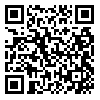Volume 9, Issue 2 (3-2022)
jbrms 2022, 9(2): 43-51 |
Back to browse issues page
Download citation:
BibTeX | RIS | EndNote | Medlars | ProCite | Reference Manager | RefWorks
Send citation to:



BibTeX | RIS | EndNote | Medlars | ProCite | Reference Manager | RefWorks
Send citation to:
Shohani F, Mihandoost Z, Mami S. The effect of assertiveness and stress management training on self-regulation and resilience building among adolescent female students. jbrms 2022; 9 (2) :43-51
URL: http://jbrms.medilam.ac.ir/article-1-637-en.html
URL: http://jbrms.medilam.ac.ir/article-1-637-en.html
Department of Psychology, Ilam Branch, Islamic Azad University of Ilam, Ilam, Iran , xozns2006@yahoo.com
Abstract: (2012 Views)
Introduction: The present study was conducted to evaluate the effect of assertiveness and stress management training on self-regulation and resilience building among adolescent female students.
Materials and Methods: This quasi-experimental study was carried out among 102 female students in high schools of Ilam in 2020, selected by cluster sampling and randomly divided into three groups of assertiveness training, stress management training, and control. Data were collected using “The Connor-Davidson Resilience Scale (CD-RISC)” and “The Pintrich and De Groot's Motivated Strategies for Learning Questionnaire (MSLQ)” in two stages of pre- and post-test and were analyzed using MANOVA and ANCOVA statistical tests, while P < 0.05 was considered significant.
Results: In the present study, assertiveness training was effective on self-regulation and resilience building by modifying pre-test scores (P = 0.001). Stress management training was effective on self-regulation building by modifying pre-test scores (P = 0.003). However, in the variables of trust in individual instincts, negative emotion tolerance, positive acceptance of change and safe relationships, control and spiritual effects, there is a significant difference between the mean post-test score of the stress management group and control after controlling the pre-test scores, which indicates the effectiveness of stress management training on resilience building (P = 0.001). Furthermore, assertiveness and stress management training had an effect on self-regulation and resilience building (P < 0.05).
Conclusion: Among junior high school students, assertiveness and stress management training has been effective on self-regulation and resilience building among adolescent girls.
Materials and Methods: This quasi-experimental study was carried out among 102 female students in high schools of Ilam in 2020, selected by cluster sampling and randomly divided into three groups of assertiveness training, stress management training, and control. Data were collected using “The Connor-Davidson Resilience Scale (CD-RISC)” and “The Pintrich and De Groot's Motivated Strategies for Learning Questionnaire (MSLQ)” in two stages of pre- and post-test and were analyzed using MANOVA and ANCOVA statistical tests, while P < 0.05 was considered significant.
Results: In the present study, assertiveness training was effective on self-regulation and resilience building by modifying pre-test scores (P = 0.001). Stress management training was effective on self-regulation building by modifying pre-test scores (P = 0.003). However, in the variables of trust in individual instincts, negative emotion tolerance, positive acceptance of change and safe relationships, control and spiritual effects, there is a significant difference between the mean post-test score of the stress management group and control after controlling the pre-test scores, which indicates the effectiveness of stress management training on resilience building (P = 0.001). Furthermore, assertiveness and stress management training had an effect on self-regulation and resilience building (P < 0.05).
Conclusion: Among junior high school students, assertiveness and stress management training has been effective on self-regulation and resilience building among adolescent girls.
Type of Study: Research |
Received: 2021/10/8 | Accepted: 2021/12/6 | Published: 2022/07/13
Received: 2021/10/8 | Accepted: 2021/12/6 | Published: 2022/07/13
Send email to the article author
| Rights and permissions | |
 |
This work is licensed under a Creative Commons Attribution-NonCommercial 4.0 International License. |





